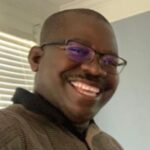
By Justin Kojok
Charismaticism is a type of worship characterized by a quest for inspired and ecstatic experiences such as healing, prophecy, and speaking in tongues. In other words, it is a movement of Christian evangelicals who uphold the operation of the spiritual manifestation of the gift of the Holy Spirit as narrated in 1 Corinthians 12:4-11, and Romans 12: 6-8. This group of Christians believe in freedom of worship as the Holy Spirit leads and directs.
They believe that wherever the Holy Spirit is, there is liberty, which includes a free style of worship. Therefore, in a charismatic adoration there is shouting, dancing, running, jumping, crying or even lying down prostrate. There is freedom of adulation instead of laid down rules for devotion. People feel free in self-expression in the form of speaking in strange languages called tongues and in any dialects, they feel like expressing themselves in. Charismatics also have no strict dress code but as each delves into biblical teachings, he or she gradually dresses moderately and decently.
The movement has attracted many people to the saving knowledge of Christ, from all walks of life; from ordinary people to university dons and business gurus. The old mentality that it is only the poor or the failures that go to church or become pastors has given way to new notions of ministration. Now we see artists, sporting personalities, media men and women, medical doctors, university professors, etc attending church as a serious activity or donning in priestly gown.
In Ghana today, Charismaticism has made Christianity popular and attractive across the country, the continents, and the globe. It has increased Christian population in Ghana to the extent that cinema halls and factories premises have been converted to worship centers. The spillover has spread beyond the nation?s borders, and now branches of Ghanaian churches can be found all over the world. Because Charismaticism was born out of Pentecostal movement, it is sometimes called neo-Pentecostalism or classical Pentecostalism. Its appearance in Ghana dates back to the late 1970s. It became manifested prominently in the 1980s.
The word charisma or charism is from the Greek charisma which means favor or gift. Its other derivative is the Greek word chairein, meaning to rejoice or give thanks. Charismata is the plural (again, from Greek syntax), and it has a peculiar meaning in relation to Christian doctrine. The plural form denotes an extraordinary power given to a Christian by the Holy Spirit for the good of the church.
Hence, charismata in Christian belief, represent the manifestation of Pentecostal experience, and can be traced to the Old Testament days. In 2 Samuel Chapter 6, King David was so filled with charismata when the Ark of God was brought into the city that he danced almost to the point of nudity, which made his wife spiteful of him.
In a charismata experience, as in the case of King David, one doesn?t really care about his surrounding or what people say of what one is doing at the moment. A case in point is Jesus? own examples when he went about doing well, teaching the word, performing miracles on the Sabbath and whipping money changers in the temple without a thought of what people might say. He even became friend of the poor, the weak, the unclean, the sinner, etc. This was a drastic change in the mode of worship in the true charismatic spirit. In John 4: 24, Jesus declared the true worship of God.
Truly speaking, Charismaticism in the church started at the very inception of the church on the Day of Pentecost in Acts 2 when the Holy Spirit baptism descended on the people of all walks of life who eventual were thought of being drunk. Peter, Paul and the other apostles continued the charismatic spirit throughout New Testament. In the course of time, the charismatic spirit grew cold in the church with frequent revivals in church history, such as Martin Luther?s reformation and the Wesleyan revolution in Methodism. These two phenomena witnessed unprecedented demonstration of God?s power in the lives of men.
In our time, the revival of Charismaticism emerged with the resurgence of Holy Spirit manifestation on January 1, 1901. On this day in a theological institute in Topeka, Kansas, USA, a group of students were praying when all of a sudden one of them, Agnes Ozman, experienced charismata with the evidence of speaking in tongues.

Agnes Ozman was a student at Charles Fox Parham’s Bethel Bible School in Topeka, Kansas. Ozman was considered as the first to speak in tongues in the Pentecostal revival when she was about 30 years old in 1901 (Cook 2008)
This Pentecostal experience gradually spread all over the United States, and soon the pockets of people God was using through the power of the Holy Spirit began performing miracles, working signs and wonders as they evangelized their nation and world. It is from these revolutionary beginnings that 20th century Christian leaders emerged to fulfill the great commission. Names like Morris Celulos, Oral Roberts, Billy Graham, Yongi Cho, Myles Monroe, Idahosa, Matthew Ashimolowo, Renard Bonke, Rick Warren, Joel Osteen, etc easily come to mind.
In Ghana, the charismatic movement began in the 1950s with the emergence of new Pentecostalism. In 1953 Rev. Anim and Rev. James Mckeomn left the Apostolic Church of the Gold Coast to form their own churches. The former established Christ Apostolic Church and the latter the Gold Coast Apostolic Church, which in 1962 became the Church of Pentecost. This radical departure brought revival in the Christian church in Ghana. Round about the same time, the America-led Assemblies of God church was making great inroads with the word of God, especially in Northern Ghana. These spirit-filled churches shook the Gold Coast with signs and wonders, and delivered many people from their bondage and won them for Christ.
However, this pioneering surge of Pentecostal revivalism did not push Charismaticism from the periphery to the center. Spirit-filled Christianity remained an embarrassment to some communities in Ghana, with only the underprivileged and the uninformed as its adherents. In 1970s, Pentecostalism began to shift to the center with the energetic work of the many Christian youth who had converted through the Scripture Union (SU). These young born-again Christians joined efforts of the three established Pentecostal churches to undertake the onerous task of winning the lost souls for Christ. They started preaching on the streets, hospitals and prisons.
Some of these youthful evangelists were the Acquah sisters and Mrs. Raji, an Indian lady who met young Duncan Williams on his hospital bed at now Korle-Bu Teaching Hospital in Accra and helped him to give his life to Christ.
Duncan Williams received his Holy Ghost baptism in the Church of Pentecost. The new experience welled up great interest, zeal and enthusiasm in him that it was reported that he often walked several kilometers from his home at the Airport Residential area to meetings at the Kaneshie Central Church of Pentecost.
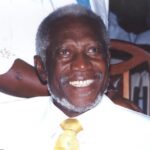
This was the time Brother Enoch Agbozo?s Ghana Evangelical Society (GES) engaged in training the youth for God?s work.
Many youth who got converted at SU drifted into GES and other fellowships when their mother churches could not effectively utilize their fire.
Meanwhile, Duncan Williams entered late Bishop Idahosa?s Church of God Mission International Bible College in Nigeria to be trained as a pastor. After the training, he returned to Ghana and wanted to work as an evangelist in the Church of Pentecost.

Having not been trained by the church, he was denied the mission and he began a home cell fellowship in his father?s house in 1978. His mentor Idahosa encouraged him to start a church, and in 1979 he founded Christian Action Faith Chapel in Accra.
Many youth got attracted to Duncan Williams? church due to the remarkable liberal and spontaneous worship, miracles, healings, new style of preaching and Holy Spirit baptism that occurred there.
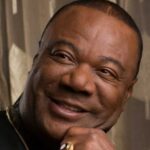
The young Duncan Williams (now Archbishop) mentored and trained the likes of Bishops Dag Heward-Mills who was in the Music ministry, Rev. Ampiah Kwofie first pastor in charge of evangelism ministry, and Rev. George Abaka Johnson.
Later, these pastors, except Heward-Mills, left Action Chapel to form Global Revival Ministries (GRM). Pastor Mensah Anamoah Otabil who was then with GES, left it to join GRM.

Otabil later left GRM with Rev. Eric Kwapong and started International Central Gospel Church (ICGC) on 26th February 1984, in Accra. The first meeting was held in a small classroom in Kanda cluster of schools with an initial membership of just about twenty people. In the same year in Kumasi, Pastor Ransford Obeng, a youth pastor of Assemblies of God at the Kwame Nkrumah University of Science and Technology (KNUST), also began Calvary Charismatic Centre (CCC) and had their first service at Ministries Canteen in Adum, Kumasi.
Brother Agbozo?s GES did play a yeoman?s role in the development of Charismaticism in Ghana. Many of the firebrand charismatic pastors we have in Ghana today were trained there. Among GES trained pastors are Pastor Otabil, Rev. David Abbey, Bishop Agyin Asare, Rev. Samuel Owusu, etc. Bishop Agyin Asare then known as Brother Charles had developed a peculiar zeal for penetrating into the hinterland with the good news. By mid 1980s he reached out to villages in Eastern, Ashanti, Brong Ahanfo and Volta regions with open crusades which attracted big crowds where diverse kinds of miracles, healings and Holy Spirit baptism were witnessed and many lives were saved.
Brother Charles was familiar with various kinds of religions, so he knew what he was up against when he decided to venture into areas where few evangelists would do.
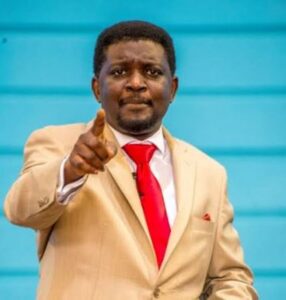
He went to Tamale in the mid 1980s with a series of successful mass crusades that saw the power of the Holy Spirit breaking the strong holds over people?s lives in the region and beyond. Around this time he formed the Word Miracle Bible Church in Tamale, which he later transformed into Word Miracle Church International with the headquarters relocated to Accra from Tamale.
Meanwhile back in Kumasi Pastor Ransford Obeng?s new vision was attracting the faithful of all classes. His vision was to have a non-denominational English church in the city of Kumasi that will spread the good news throughout the country and to the ends of the earth.
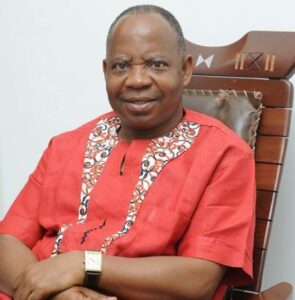
The direction was to reach out to the non-church English speaking residents, guests and students in Kumasi and its environs, no matter the cultural, ethic and language barriers, with its vision statement, ?Calvary Charismatic Centre has been formed as a fellowship of believers under the Lordship of Jesus Christ. Our supreme desire is to produce Committed Christians who will devote themselves to the teaching of God’s Word, Prayer and Fellowship as found in Acts 2:42 and equip them to fulfill the Great Commission of Matthew 28:19-20. Looking unto Jesus, the standard of our faith, we follow His example by encouraging each member to win twelve people and disciple them for Christ in a concept we call the D-12?.
A purely English church in a dominantly Twi-speaking city, CCC had to contend with criticism that labeled it ?rich people church? due to the type of people who attended the church, mainly businessmen, intellectuals and urban professionals. Nonetheless, the church embraced low income earners, students and the unemployed as well. This is because its leader Ransford Obeng, always down to earth, brought a number of innovations into Christendom, which made CCC a highly appealing center for all people of socio-economic class levels.
The late Bishop Bob Hawkson, also founded Jubilee Christian Centre headquartered in Accra. The church has kept a uniquely peculiar style of worship and continues to keep the Neo-Pentecostal flame with great zeal and enthusiasm. Another man of charisma is Rev. Michael Essel who founded the Grace Outreach Church in 1985.
With the flame lit in 1980s, the Pentecostal movement saw a new surge of energy in the late 1980s and early 1990s. A new breed of charismatic leaders sprang up, many of whom left their professions to take up the cross. Some medical doctors who left their physician consulting rooms are Rev. Dr Seth Ablorh who founded

Manna Mission Church and Rev., now Bishop Dag Heward-Mills who left Action Chapel and founded the Lighthouse Chapel International.
Other professional guys who got into Pentecostalism and founded Penteco-Charismatic churches in Ghana are; the late Brother Amoako of the Resurrection Power Ministries who traveled length and breadth of Ghana preaching God?s word until his death through accident, Bishop Asare Bediako (formerly known as Rev. Elvis Asare Bediako who denounced his name Elvis in 1996) of Living Bread Ministries which later merged with Resurrection Power Ministries. Others include Bishop Addae Mensah of Gospel Light Church headquartered in Accra, Rev. Anyani Boadum of Jesus Generation Sanctuary headquartered in Accra, Rev. Nyamekye of Living Faith Ministries headquartered in Kumasi, Rev. Victor Osei of Family Chapel, Kumasi, Late Bishop Owusu Tabiri (Died June 2, 2005) of Bethel Prayer ministries, Sunyani, Rev. Sam Korankye Ankrah of Royalhouse Chapel, Bishop Nii Tackie Yarboi of Victory Bible Church, Rev. Gordon Kisseih of Family Life Church, Rev. Vaglas Kanko of Vinegard Ministries, famous Rev. Kwabena Darko of Oasis of Love Church, Rev. Steve Mensah of Charismatic Evangelistic Ministries, etc.
The list of these guys who contributed to the spread of the gospel through charisma is endless. Special mention is to be made of the Bolga ?fireman?.
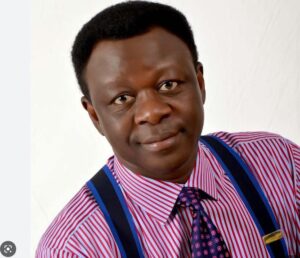
A trained pharmacist from KNUST, Rev Eastwood Anaba had a call to win souls for Christ and he established Broken Yolk Ministries in Balgatanga, which was later, renamed Fountain Gate Ministries. It is important to mention that few women who threw the traditional notion of being the keepers of kitchen have also contributed in diverse ways in evangelism through charismatic style. Rev. Christy Doe Tetteh rose from a hotel receptionist in 1977 to become the general overseer of Solid Rock Chapel which she founded in October 1994. Others are Rev. Mercy Boamah of Fulfill Gospel Chapel and the famous politician Joyce Aryee, also left the political platform to found Salt and light Ministries.
These charismatic leaders succeeded because they used diverse means to propagate the Gospel messages: Open crusades, door-to-door evangelism, visitations, preaching on moving buses, writings and radio and TV broadcast. In May 1995, Pastor Otabil brought a new dimension to evangelism in Ghana when he began his radio ministry on the then newly established Joy FM. In the same year in November, Pastor Ransford also started radio broadcast on Otec Radio in Kumasi. In late 1990s Bishop Duncan Williams began TV evangelism on Ghana Broadcasting Corporation?s GTV. This set the blaze for others to follow, and now TV and radio ministry is the order of the day which is becoming an eyesore anyway.
In the next installment of this article, I?m going to examine the effects (good and bad, both spiritual and physical development of people), direction, and future of Charismaticism in Ghana and its spillover abroad. God bless.

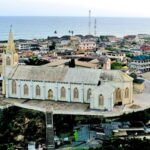

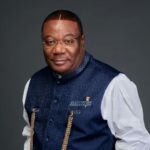
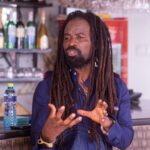
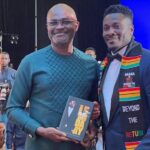
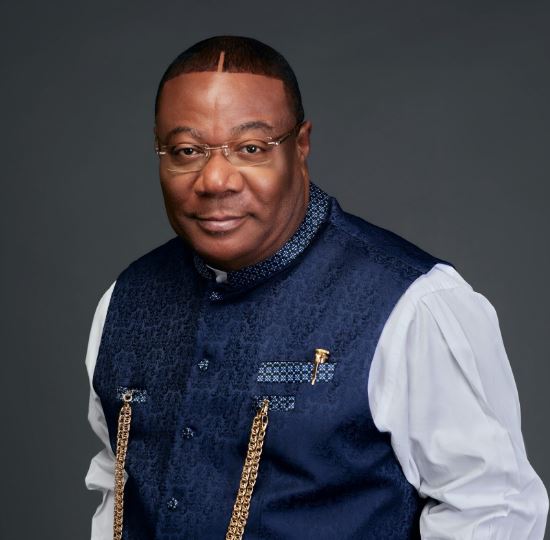





More Stories
The Birth and Effects of Charismaticism in Ghana (II)
Long-distance Relationships And Tips For Success.
?My biggest achievement so far is being a United Nations goodwill ambassador?- Rocky Dawuni